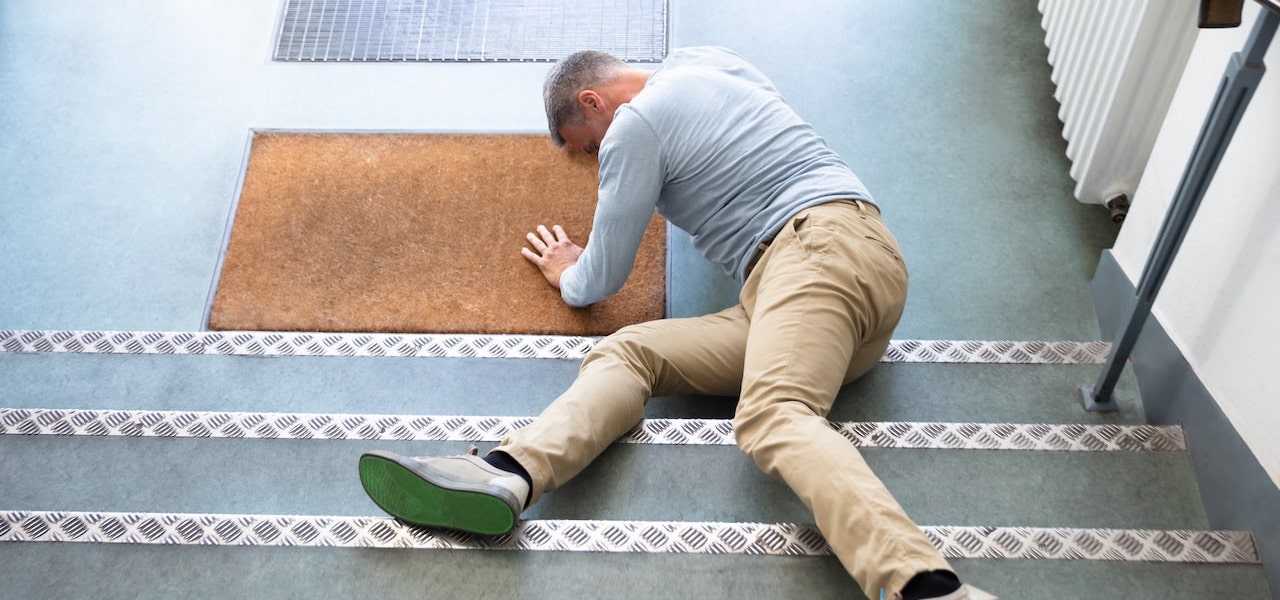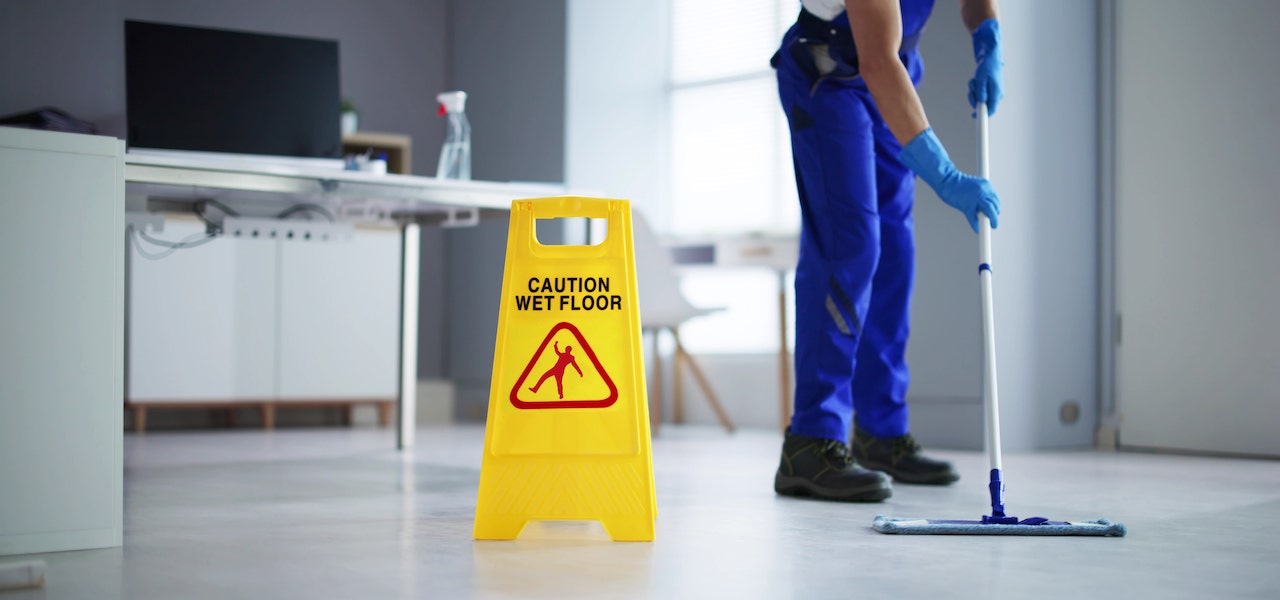For residents in Hialeah grappling with injuries from a slip and fall, understanding premises liability is essential. This aspect of personal injury law in Florida holds property owners, managers, and occupants accountable for maintaining safe conditions. Negligence leading to accidents could make them liable for various damages, including medical costs, lost wages, and pain and suffering. The repercussions of such injuries can be severe, affecting the physical, emotional, and financial well-being of the injured victim.
In Florida, property owners, managers, and occupants have a duty to reasonably prevent these risks. If you are injured due to someone else’s negligence, get connected to personal injury lawyers near you for legal support.

Types of Slip and Fall Accidents in Hialeah, FL
A slip-and-fall accident can happen due to numerous causes. While often underestimated, these situations can lead to significant fall injuries — even spinal cord injuries or traumatic brain injuries — impacting a person’s life drastically. Understanding the common types of these accidents is vital for recognizing when you might have a personal injury claim.
In Hialeah, places from busy shopping centers to serene residential areas can present risks of falling such as:
- Wet and slippery surfaces: This is common in grocery stores, malls, or other public spaces where spills or recently mopped floors present a risk.
- Uneven sidewalks: Cracked or uneven pavement, especially in older neighborhoods or near construction sites, can cause unexpected trips.
- Cluttered walkways: In commercial and residential settings, obstacles like cords, debris, or personal items can result in falls.
- Poor lighting: Insufficient lighting in parking lots, stairwells, or walkways can hide potential hazards.
- Defective staircases: Broken, loose, or uneven steps in buildings or public spaces pose a significant risk.
- Unmarked hazards: Situations where potential dangers like wet floors or short steps are not clearly signaled can cause falls.
- Weather-related falls: In certain weather conditions, outdoor surfaces can become slippery, especially with rain or the rare frost.
- Flooring transitions: Moving from one type of flooring to another, like from carpet to tile, can sometimes cause trips if not properly designed.
Premises Liability Laws in Florida for Slip and Fall Accidents
Premises liability laws in Hialeah, FL, govern the legal responsibilities of property owners, managers, and occupants regarding accidents that occur on their property. These laws are especially pertinent in slip and fall cases, where numerous factors determine liability and the injured party’s right to seek compensation.
Duty of care
The focal point of premises liability is the duty of care. Property owners in Florida are legally obligated to maintain their premises in a reasonably safe condition. This duty extends to inspecting for potential hazards and fixing them or warning visitors about them. The extent of this duty can vary based on the visitor’s status:
- Invitees: Individuals invited onto the property for business purposes, like customers in a store, are owed the highest duty of care. Owners must regularly inspect for hazards and promptly address them.
- Licensees: Guests for non-business purposes, like friends or family, are owed a lesser duty. Owners should warn them of known dangers but are not required to inspect the property actively.
- Trespassers: Generally, owners owe the least duty to trespassers, except in cases involving children or known, frequent trespassers.
While trespassers generally have limited rights under premises liability, frequent or known trespassers can be an exception. If a property owner is aware of regular trespassing, they might be expected to warn these individuals of potential dangers, especially if those dangers are not obvious.
The level of duty can also vary depending on the state of the property. For instance, if there are hidden dangers that the owner is aware of, they might be obligated to provide warnings, even to trespassers in some cases.
Attractive nuisance doctrine
You may have heard about this doctrine that applies primarily to children who may be drawn to certain features on a property. The classic example is a swimming pool. Even if a child is technically trespassing, the property owner may still be held liable for injuries if:
- The property has an object or condition that is likely to attract children.
- The property owner is aware or should reasonably be aware of the potential danger to children.
- Children, due to their age, are unlikely to recognize the risk.
- The cost of remedying the situation is minimal compared to the risk to children.
For property owners, this means a higher level of vigilance is necessary, especially in areas or on properties that could be attractive and accessible to children. Regular inspections and maintenance, adequate fencing, warning signs, and other preventive measures are essential to reduce the risk of slip and fall accidents.
Proving negligence
To establish a property owner’s liability in a slip and fall case in Hialeah, the injured party must prove negligence, which means that:
- The property owner knew or should have known about the hazard.
- The owner failed to fix the hazard or adequately warn about it.
- This failure directly caused the fall injury.
Evidence such as slip and fall incident reports, witness statements, and maintenance records can prove negligence. A free consultation with a personal injury claims attorney can be the starting point for your personal injury lawsuit if you suffered injuries — such as spinal or head injuries or other bodily injuries — in a slip-and-fall accident.
Comparative negligence for slip and fall accidents (updated 2023)
For all personal injury cases in Florida, the recent shift to modified comparative negligence is significant. Simply put, if you are found to be over 50% responsible for your fall and resulting injuries, you can no longer claim personal injury compensation from the other party.
Imagine a situation in a Hialeah grocery store where you lose your balance due to a wet floor. Under the previous pure comparative negligence system, if you were found 60% responsible for not noticing the wet floor signs, you could still recover 40% of the damages from the store.
However, under the updated law, if you are adjudged more than 50% responsible for the accident, you would not be eligible to claim any damages from the store. This change places a higher burden on you — the injured party — to demonstrate that your level of fault was less than 50% to receive any compensation. It emphasizes the importance of evidence like surveillance footage, witness statements, or the presence and visibility of warning signs to determine the degree of fault.
Statute of limitations for slip and fall claims (updated 2023)
The statute of limitations for filing a fall injury claim in Florida is now two years, reduced from the previous four-year period. This amendment accelerates the process for victims to file a lawsuit to recover compensation for their damages.
Now, with only two years, you must act more swiftly. This urgency means quickly documenting the incident, seeking medical attention to establish a record of injuries, and consulting with a slip and fall lawyer sooner rather than later.

Can You Recover Compensation if You Were a Trespasser?
Trespassers have limited rights under premises liability laws. Property owners are not obligated to warn undiscovered trespassers of dangers on their property. However, they must not intentionally harm trespassers or set up intentionally dangerous conditions.
An owner or occupier can be held liable for injuries to trespassers in the following scenarios:
- A trespasser had reason to believe they were allowed or welcome on the property when the injury occurred.
- The trespasser was an “undiscovered trespasser” and the property owner acted negligently or intentionally in a way that caused harm upon discovering their presence.
- The trespasser was a “discovered trespasser,” meaning the property owners knew the trespasser was on the property at least 24 hours before the slip and fall injury and failed to take steps to remove hazards or warn of dangers.
That said, owners in Hialeah, FL, cannot be held liable for injuries to trespassers who were under the influence of alcohol (with a blood-alcohol content of 0.08 percent or higher) or controlled substances. Additionally, owners are not responsible for injuries or death of trespassers who are on their property with the intention to commit a felony or were in the act of committing a felony.
How CarAccidentAttorney.com Can Help
Avoid negotiating directly with insurance companies after a slip and fall accident in Hialeah, FL. Instead, use CarAccidentAttorney.com to find slip and fall attorneys to represent you. Experienced in cases involving grocery stores, schools, parking lots, and other public and private spaces, your fall injury lawyer can try to obtain the following critical evidence to establish negligence:
- Surveillance camera footage
- Witness statements
- Incident reports
- Property maintenance records
- Photographs of the fall incident scene
- Medical bills and records
- Safety inspection reports
- Building codes and regulations compliance documents
- Weather reports (if applicable)
- Expert testimony (e.g., safety experts, medical professionals)
Whether you were injured while visiting a popular location like Hialeah Park Casino or Entrance Plaza Park or on someone’s private property, a seasoned Hialeah slip-and-fall attorney can fight for your right to compensation. Call CarAccidentAttorney.com or contact us online today to find personal injury lawyers in your area.
DISCLAIMER: CarAccidentAttorney.com is an attorney and medical referral service.
